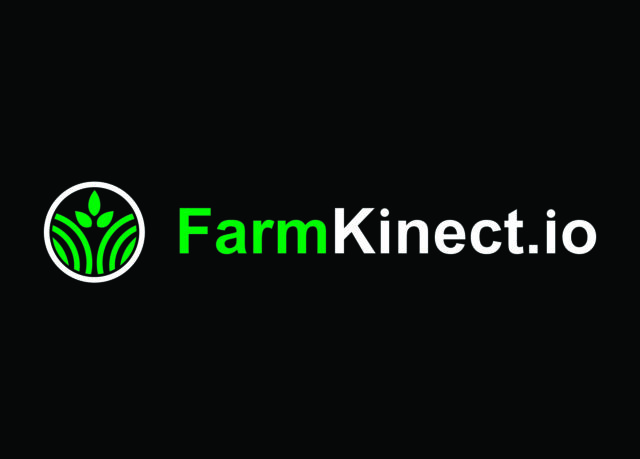Digest Highlights: Milk deserves income insurance options similar to crops. Canadian mid-year cow and heifers numbers up slightly. McDonald’s sets antibiotic framework requirements for suppliers. There’s an updated Spanish language Form I-9 web page. A class action lawsuit over parmesan cheese product labels is dismissed. Find a summary of these and other news here.
Lawmakers urge USDA to improve dairy income insurance options
Northeastern U.S. lawmakers are urging the USDA to come up with a better income margin insurance program for dairy farmers.
More than 25 members of Congress, representing both parties, sent a letter to U.S. Ag Secretary Sonny Perdue, urging him to use his authority to provide dairy farmers with financial relief and insurance options similar to those offered under the USDA Risk Management Agency’s Federal Crop Insurance Program.
The letter criticized the current Margin Protection Program for Dairy (MPP-Dairy) and asked the USDA to define milk as a distinct agricultural commodity eligible for Federal Crop Insurance Corporation (FCIC) coverage.
"Parmesan" class action lawsuit dismissed
A U.S. district judge dismissed a class action lawsuit filed by consumers who sought to sue food manufacturers and retailers over their “100 percent grated parmesan cheese” labels, alleging they were deceived because the products contain cellulose.
The original lawsuits were filed after a news report revealed several grated parmesan cheese products contained cellulose, an ingredient not specifically identified on labels. The U.S. Food and Drug Administration allows the plant-based fiber at levels of 2 to 4 percent in grated cheese as an additive to prevent clumping. However, Bloomberg News found several major varieties of grated parmesan cheese contained cellulose levels of 0.3 percent to 7.8 percent.
Several dozen individual lawsuits were consolidated into one class action lawsuit in the U.S. District Court for the Northern District of Illinois. Kraft Heinz, Target, Walmart and Supervalue were among those named in the lawsuit.
In dismissing the suit, U.S. District Judge Gary Feinerman said labels on the parmesan cheese product packages disclosed the presence of ”noncheese ingredients.” He said any reasonable consumer would know the products contained some additives because they did not require refrigeration before the container is opened.
Feinerman gave the plaintiffs until Sept. 14 to amend their complaints.
Canadian dairy cow, heifer numbers slightly higher
Mid-year dairy cow numbers in Canada are up about 2 percent from a year ago, according to a semi-annual report from the USDA and Statistics Canada.
As of July 1, 2017, Canadian producers had an estimated 945,000 cows on their farms, an increase of about 14,700 head from a year earlier. Dairy replacement heifers (1 year old or older) totaled 454,100 head, also up 2 percent (6,900 head).
Based on these estimates, Canadian dairy cow numbers are the highest for July 1 since 2014, with replacement heifers the highest since 2013.
McDonald’s announces supplier antibiotic use framework
McDonald’s released its “Global Vision for Antibiotic Stewardship in Food Animals,” a framework the company will use to establish species-specific policies regarding antibiotic use.
According to the announcement, McDonald’s will work with its dairy (milk and meat), beef, poultry (meat and eggs) and pork suppliers, industry leaders, government agencies, nongovernment organizations, veterinary and university extension networks and other retailers to identify steps and develop timelines for implementation and third-party verification criteria in an effort to reduce antibiotic use in food animals.
McDonald’s will only source meat and eggs from food animals not treated with antibiotics used as growth promotants or routine disease prevention (use of ionophores will be permitted). Antibiotics can only be used in conjunction with a veterinary-developed animal health care program. Antibiotics considered critically or highly important to human health (based on World Health Organization categories) will not be allowed unless other antibiotics have been proven ineffective for animal disease treatment and approved by an attending veterinarian.
Suppliers must utilize animal production practices that reduce, and where possible eliminate, the need for antibiotic therapies and adopt existing best practices and/or new practices that would result in subsequent reductions of antibiotic use.
NMPF urges ‘nondisparaging’ biotech food labeling
The National Milk Producers Federation (NMPF) filed comments with the USDA’s Agriculture Marketing Service, recommending a new food labeling standard covering foods containing bioengineered ingredients should focus on providing consumers accurate information, while discouraging misleading marketing tactics or meaningless absence claims.
NMPF suggested that only two designations be used to disclose bioengineered foods: “contains bioengineered ingredients” and “may contain bioengineered ingredients.” It also insisted that any disclosure be “nondisparaging” to bioengineering technology.
In its comments, NMPF said it supports a strict, science-based approach in determining how foods made using bioengineering should be regulated.
There is “irrefutable scientific evidence that such foods are safe and not materially different from their conventional counterparts,” said NMPF President and CEO Jim Mulhern. Too many food companies utilize “fear-mongering” to vilify food biotechnology, as they seek to profit from the consumer confusion surrounding its use, he said.
Giving farm animals grains developed through biotechnology has no effect on the meat and milk derived from those livestock, therefore “dairy foods are not genetically modified products and therefore there is nothing to label,” Mulhern noted.
Spanish language I-9 Central web page updated
The U.S. Citizenship and Immigration Services (USCIS) released an updated Spanish language I-9 Central web site. This updated web page gives visitors information and resources in Spanish about the Form I-9 and employment eligibility verification process. The new look also includes the latest Form I-9 news and information for employers and employees on employee rights and anti-discrimination.
To learn more about Form I-9, visit the new Spanish language I-9 Central website or I-9 Central English website.
California grants available for alternative manure management
The California Department of Food and Agriculture (CDFA) is accepting applications for Alternative Manure Management Program (AMMP) grants.
The AMMP is one of two programs designed by CDFA to reduce overall greenhouse gas emissions. The program will provide $9 to 16 million in grants to California dairy and livestock operators to implement nondigester manure management practices that reduce their methane emissions.
All prospective applicants must register for a Financial Assistance Application Submittal Tool (FAAST) account. Applications and all supporting information must be submitted by Oct. 2.
For detailed information on eligibility and program requirements, as well as a schedule of workshops and a webinar, prospective applicants should visit the CDFA AMMP website. ![]()

-
Dave Natzke
- Editor
- Progressive Dairyman
- Email Dave Natzke







